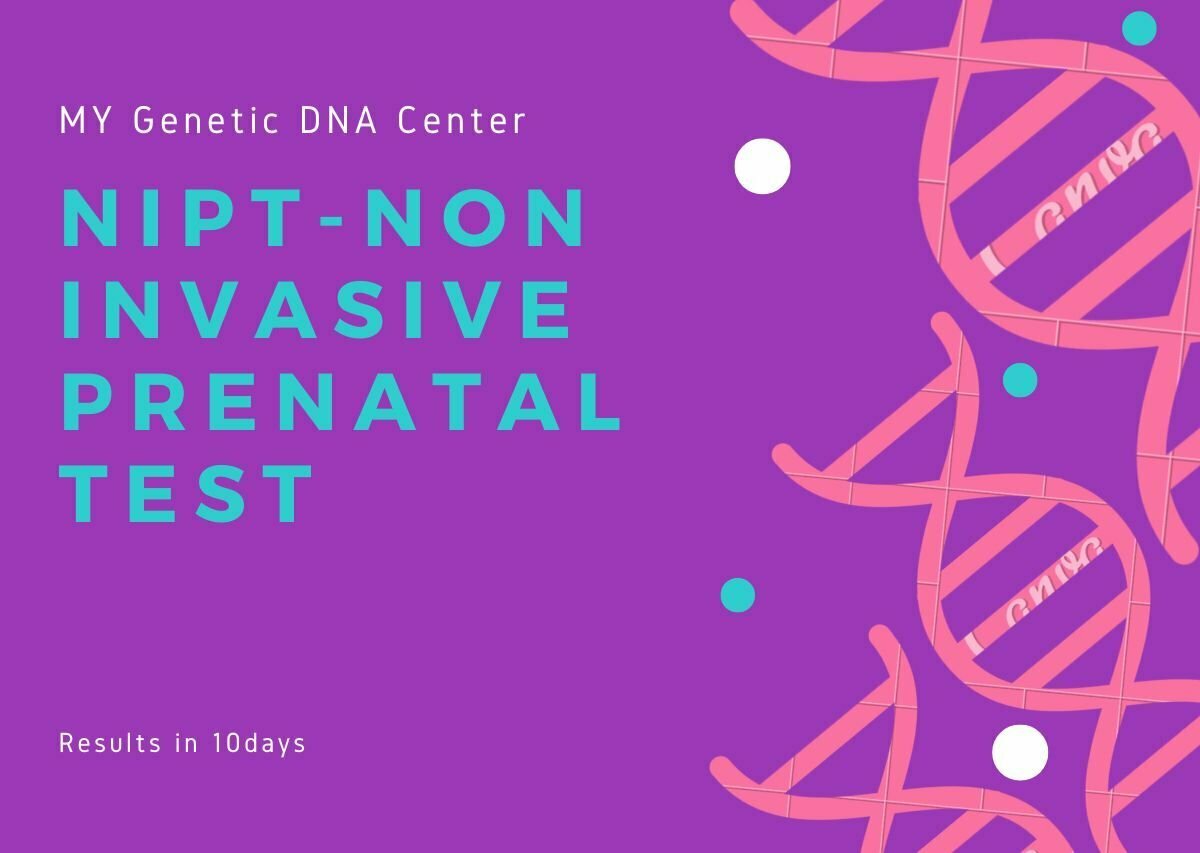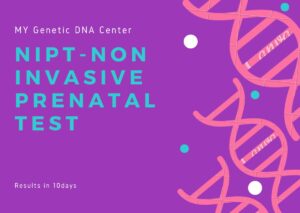Introduction of NIPT-Non Invasive Prenatal Test:
NIPT-Non Invasive Prenatal Test cfDNA- NIPT from 10 weeks of pregnancy.
What is NIPT-Non Invasive Prenatal Test?
Non-Invasive Prenatal Testing (NIPT), is a blood test that surpasses the accuracy of initial pregnancy screening tests. It is specifically recommended for women who have received previous screening results indicating an elevated risk for Down’s syndrome, Edwards’ syndrome, or Patau’s syndrome in their unborn baby. NIPT plays a crucial role in actively identifying and assessing genetic abnormalities during pregnancy.
Is NIPT safe test?
NIPT poses no risks to you or your baby, ensuring complete safety during the screening process.
Whether you are carrying one baby or twins, you will be offered the same screening choices. However, if you are pregnant with three or more babies, NIPT may not be suitable for you.
NIPT provides results for all three conditions: Down’s syndrome, Edwards’ syndrome, and Patau’s syndrome. It differs from earlier screening methods where you had the option to choose screening for specific conditions.
Why Choose NIPT-Non Invasive Prenatal Test?
- The development of your baby is determined by genes carried within tiny structures called chromosomes inside their cells. Each cell typically contains 23 pairs of chromosomes.
- However, changes can occur during the production of sperm or egg cells, leading to the presence of an additional chromosome in your baby. While babies with Trisomy 21, Trisomy 18, and Trisomy 13 can be born to mothers of any age, the likelihood of these conditions increases with maternal age.
- NIPT examines cell-free fetal DNA (cffDNA) found in the maternal blood to assess the possibility of an extra chromosome in the baby. It’s important to note that Down syndrome, Edwards syndrome, and Patau syndrome are spectrum conditions that can manifest in varying degrees of severity.
How is the NIPT-Non Invasive Prenatal test performed?
To perform NIPT:
The healthcare provider conducts a simple blood test by drawing blood from the mother’s arm, following a procedure similar to any other blood test. Importantly, it is crucial to note that this procedure poses no risk to the baby. After collecting the blood sample, the healthcare provider promptly packages and sends it to the laboratory for processing and analysis.
Results of NIPT:
The results of NIPT screening indicate whether there is a low or high probability of the baby having Down syndrome, Edwards syndrome, or Patau syndrome.
If you receive a high-probability result, our expert team will actively guide you through the available pathways, which may involve additional investigations such as detailed ultrasound scans, invasive testing, and counseling.
What results can I expect from NIPT-Non Invasive prenatal test?
Low risk:
If you receive low probability results, it indicates that the chances of your baby having each of the conditions are less than 1 in 10,000. In other words, it is expected that fewer than one baby out of ten thousand births would have Down’s syndrome, Edwards’ syndrome, or Patau’s syndrome.
High Risk:
Receiving a high probability result from Non-Invasive Prenatal Testing (NIPT) can be a significant moment for expectant parents. While it indicates a higher likelihood of a specific trisomy, it does not confirm the presence of the condition. Further diagnostic testing is essential to obtain a conclusive diagnosis.
What are the Advantages of the NIPT test?
Accuracy:
NIPT boasts an exceptional accuracy rate in detecting common chromosomal abnormalities, such as Down syndrome, Edwards syndrome, and Patau syndrome.
Early Detection:
One of the key advantages of NIPT is its ability to detect genetic conditions at an early stage of pregnancy, as early as 10 weeks gestation.
Non-Invasiveness:
Unlike invasive prenatal procedures, NIPT requires only a simple blood draw from the mother’s arm, making it a safe and non-invasive option. This minimizes the risk of complications and eliminates the need for invasive techniques.
Reduced False Positive Rate:
NIPT has a significantly lower false positive rate compared to traditional screening methods, such as maternal serum screening or nuchal translucency ultrasound.
What is the course of action if the Non-Invasive Prenatal Test (NIPT) yields No Result?
IVF, twin pregnancies, and mothers using blood thinners have a higher chance of test failure when undergoing NIPT. It is important to note that test failures can potentially cause unnecessary concern for parents.
To mitigate the risk of obtaining no result, if feasible, we recommend waiting until 11 or 12 weeks of pregnancy or later to perform the NIPT. This timeframe allows for a higher percentage of fetal fraction available for the test.
Are there any medical conditions that NIPT is unable to detect?
NIPT is unable to detect structural conditions involving the brain, face, stomach, kidney, bladder, and limbs, as well as Spina Bifida. Poor growth and development can typically only be observed through ultrasound scans, often in the second and third trimesters. It is standard practice to conduct a detailed ultrasound scan alongside NIPT.
What does the NIPT Test cost?
At My Genetic DNA Center, there are three Non-Invasive Prenatal Tests (NIPT) available: NIPT-NGS(Next Generation Sequencing), NIPT Advanced- 23 Chromosomes, and NIPT- Micro Deletions Among our patients, the NIPT-NGS(Next Generation Sequencing) is the most favored choice which costs 12,000INR.
In how many days the test reports will come?
Your NIPT-Non Invasive Prenatal Test results will be sent to you within 8-10 working days from the laboratory receiving the samples.






